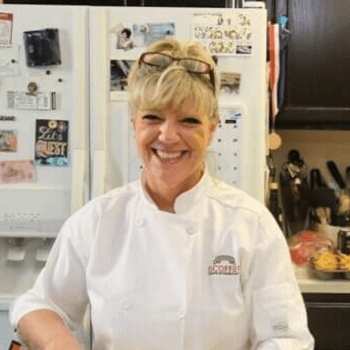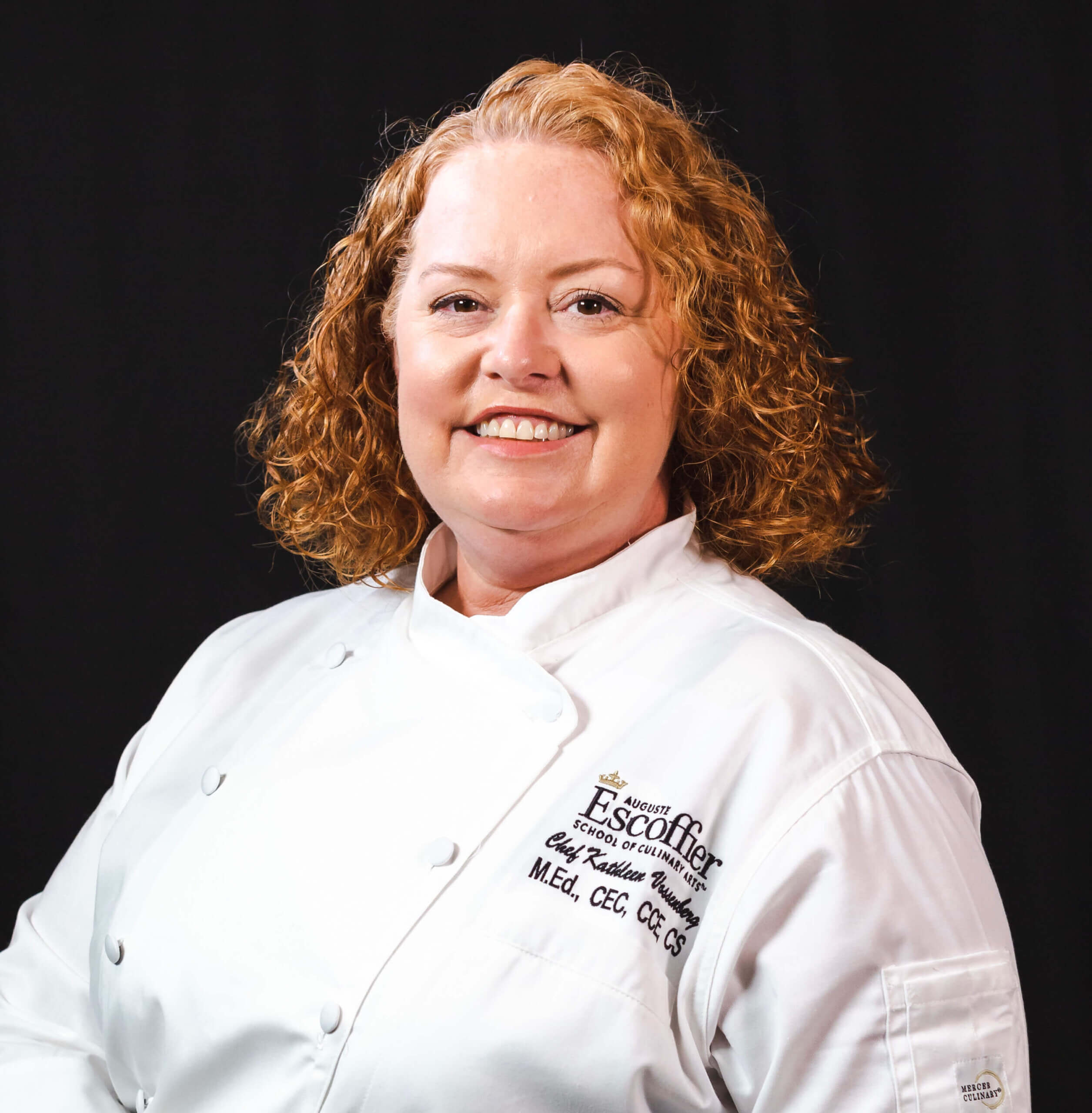Listen to This Article:
Deciding to attend culinary school is a great first step on the path to a new career. But how do you know if you’re going to be admitted?
Culinary school isn’t like a traditional four-year college. You don’t have to write a thesis or take standardized tests, because those skills don’t predict a good cook or hospitality manager.
Find out what schools like Auguste Escoffier School of Culinary Arts do look for in the admissions process, and what you can expect when you fill out your culinary school application.
How to Choose The Right Culinary School Program For You
Most culinary schools—including Escoffier—have multiple programs. They may offer culinary degrees and/or diplomas in several different disciplines, so you have the option to choose which is the right fit.
When considering your program, start by thinking about your career goals. If you hope to be an executive chef, a culinary arts program may provide well-rounded education that can help you get there. If you plan to start your own vegetarian restaurant, then our plant-based culinary arts programs might be a better fit for you.
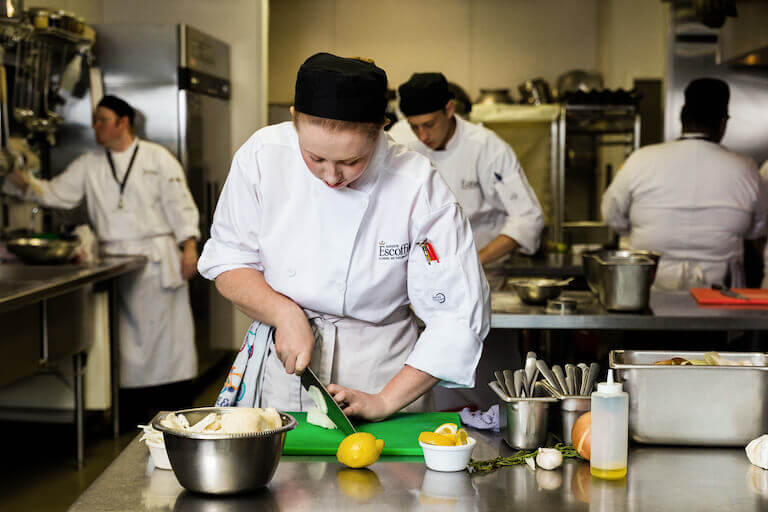
Choosing the right program may help prepare you for the future you’re working toward.
Escoffier currently offers programs in six different disciplines:
- Culinary Arts
- Baking & Pastry Arts
- Hospitality & Restaurant Operations Management (available through Escoffier Boulder campus – online only)
- Plant-Based Culinary Arts (available through Escoffier Boulder campus – residential or online)
- Holistic Nutrition and Wellness (available through Escoffier Boulder campus – online only)
- Food Entrepreneurship (available through Escoffier Boulder campus – online only)
Culinary Arts
In Escoffier’s Culinary Arts programs, students can explore both traditional and contemporary culinary techniques, as well as business skills that may help them to improve profitability and provide better leadership. Whether you want to open your own food truck or work in a bustling, high-end restaurant, culinary school can help you build the skills you may need to reach your goals.
Baking & Pastry Arts
Escoffier’s Baking & Pastry Arts programs can help prepare students for a career as a professional pastry shop chef, as a wedding cake designer, as a home-based bakery owner, or many other roles. The baking and pastry program at Escoffier highlights breads, doughs, cookies, cakes, confiserie, and more. Depending on the credential earned, courses covered could also include entrepreneurship, cost control, and other business-focused topics.
Plant-Based Culinary Arts
Escoffier’s programs also include a degree or diploma in the Plant-Based Culinary Arts. The courses in these programs build culinary foundations in both cooking and baking by focusing on the versatility of non-animal ingredients. They also include business-focused coursework, like foodservice management, purchasing, and entrepreneurship.
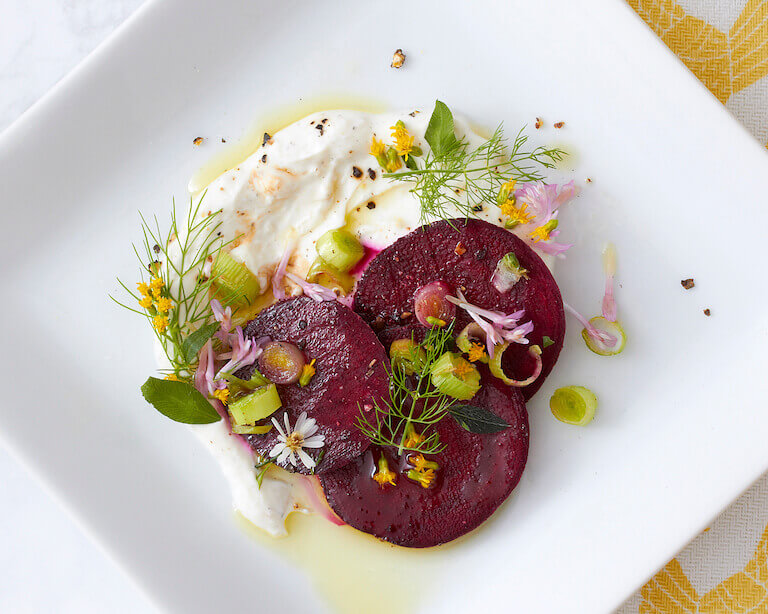
Plant-based culinary arts students explore cooking with fruits, vegetables, grains, nuts, and other plant-based ingredients.
Hospitality & Restaurant Operations Management
An associate degree in Hospitality & Restaurant Operations Management can help prepare students for a future in the oversight and management of a successful foodservice or hospitality establishment. Leadership and communication, as well as event catering, beverage operations, and menu design, are included in the curriculum.
Holistic Nutrition and Wellness
Working in a kitchen or restaurant setting isn’t the only way to make a career out of food. For those interested in the nutritional side of things, a rewarding path can be that of a nutrition coach or other wellness-related professional. Escoffier’s Holistic Nutrition and Wellness programs can prepare health-minded individuals for an opportunity helping others develop healthy nutritional habits.
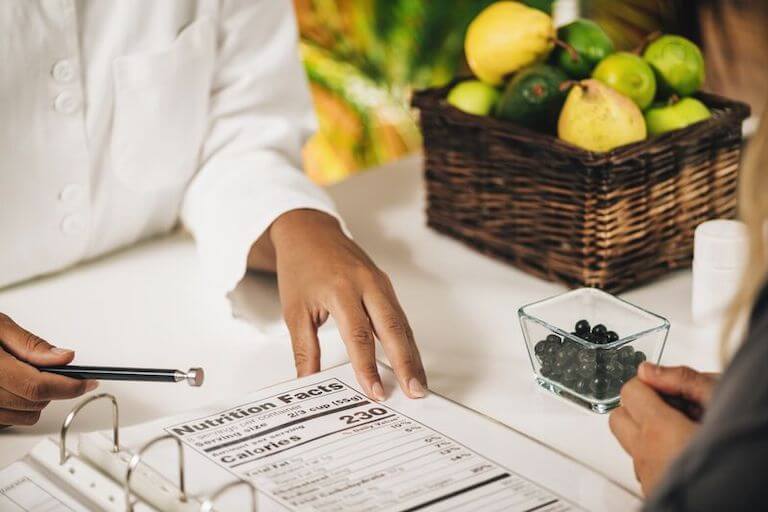
Education in Holistic Wellness and Nutrition may prepare graduates for careers as health coaches or holistic nutritionists.
Food Entrepreneurship
For many culinarians, owning their own business is the dream. A degree or diploma in Food Entrepreneurship from Escoffier may help graduates build the skillset they need to start or manage profitable companies. With coursework in cost control, marketing, business planning, and much more, the curriculum is designed to add valuable techniques to the future boss’s toolbox.
All programs at Escoffier culminate in a hands-on industry externship. This opportunity can allow students to put what they’ve learned into practice and get a sense of how a professional kitchen or foodservice operation runs. Some students who already have industry jobs may even be able to use their current position for their externships. For others, the externship may be their first introduction to the professional kitchen.
Look carefully through the courses included in each program to see if they align with your goals. Remember that no culinary program will teach you absolutely everything you’ll ever need in your career. The goal is to provide foundational knowledge that you can continue to build on through real-world experience and further study.
A day in the life of an Escoffier extern.
What Are the Requirements to Attend Culinary School?
Minimum Admissions Requirements for Culinary School
To be considered for culinary school at Escoffier, you need to meet the following requirements:
Boulder Campus (including Online Programs)
- Must be a minimum of 16 years of age (with permission of parent or guardian if under 18)
- Application for Admission
- AESCA Enrollment Agreement (inclusive of written permission of parent or guardian if under 18)
- Proof of high school graduation or equivalent (must be obtained through one of the following):
- High school diploma or transcript
- High school equivalency exam: GED, HSED, HiSet, or TASC
- Documentation demonstrating that the student has passed a state-authorized examination that the state recognizes as the equivalent of a high school diploma
- Official college transcript from a completed Associate or higher degree program from an accredited institution
- 60 completed college semester credits or 90 completed college quarter credits from one accredited institution, or
- Homeschool documentation as required by local and or state agencies, not limited to the following: notification to the required agency, academic transcripts, and proof of graduation
- For U.S. veterans, DD-214 which reflects high school equivalency
- Admissions interview
- FERPA Release Form
Austin Campus
- Application for Admission
- AESCA Enrollment Agreement (inclusive of written permission of parent or guardian if under 18)
- Proof of high school completion or equivalent:
- High school diploma
- High school equivalency exam: GED, HiSet, or TASC
- State-approved homeschool certificate of completion
- Official college transcript from a completed associate or higher degree program**
- For U.S. veterans, DD-214 which reflects high school equivalency
- Admissions interview
- Tour of facility
- Record of previous education & training (CSC-010)
- Receipt of Enrollment Policies (CSC-005)
- Information Release Form (FERPA)
And if you don’t have any previous cooking skills or work experience, that’s okay! While many culinary school students do have some experience or cooking knowledge, they’re not a requirement for admissions.
Is Culinary School a Good Fit for You?
Beyond the minimum requirements listed above, what kind of person does well in culinary school?
First, you should probably be pretty passionate about food. You’ll be thinking about food all day long! So your excitement about cooking (and eating) can go a long way in keeping your enthusiasm alive.
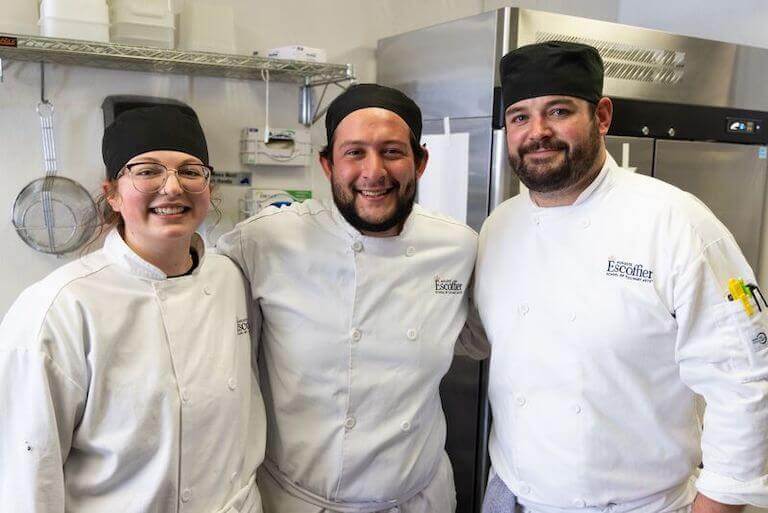
Culinary school students may be able to connect with like-minded cooks who are passionate about food.
It’s beneficial to be organized—or be willing to learn. A disorganized station is often one of the biggest pet peeves of chefs across the board. Students are expected to build the habits of cleanliness and organization during school.
Another key trait? Teachability. No one enters culinary school knowing everything — not even executive chefs with years of experience. Every student is in school to learn. So come to class with an open mind and eagerness to absorb new information.
Finally, commitment is crucial. Culinary school is an investment of time, energy, and finances. Students are expected to make their education a high priority during their program. Our team of faculty, tutors, and coaches stand ready to assist students whenever they need help.
How Much Does Culinary School Cost?
Program costs vary depending on whether you’re in a diploma program or degree program, studying on-campus or online.
In general, you may find that culinary school at Escoffier could cost less than some private or public four-year college programs. Escoffier’s programs start at $21,751, as of the date this article was published.†
Escoffier’s Financial Aid representatives work with students, helping them navigate applying for Federal financial aid, employer reimbursement, and military benefits to determine how they may choose to finance their education with Escoffier. Students can also seek out grants and scholarships to help them cover their education expenses. This route is very popular for many students who may not otherwise be able to afford culinary school. There are many grant and scholarship offerings available from both the government and private organizations.
†*Please refer to the Escoffier website and catalog for most recent tuition rates.
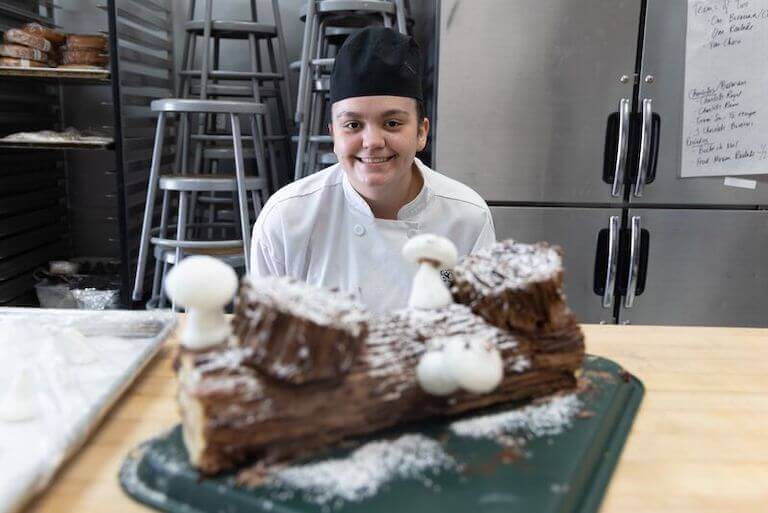
Outside funding in the form of loans and scholarships can make culinary school accessible for thousands of students.
How to Get Into Culinary School – The Application Process
Applying to culinary school is easier than you might think! If you fill out an information request form online, the Admissions Department will typically contact you first, doing an initial interview and overview before you fill out the actual school application. This allows them to get to know you and discuss your goals.
When you’re ready to get moving on your application, you can fill out an online application form, which shouldn’t take long to complete, and sign your Enrollment Agreement. There is no fee for filling out an application.
Then, you’ll be required to submit some additional documentation, including a copy of your photo ID and proof of high school completion. This could be a diploma, equivalency exam like the GED, official college transcript, or a state-approved home school certificate of completion.
During this time, you also have the option to work with the Financial Aid department to look for financing options like loans, grants, and scholarships to help fund your education.
Once you’re accepted and committed to the program, you’ll complete an orientation.
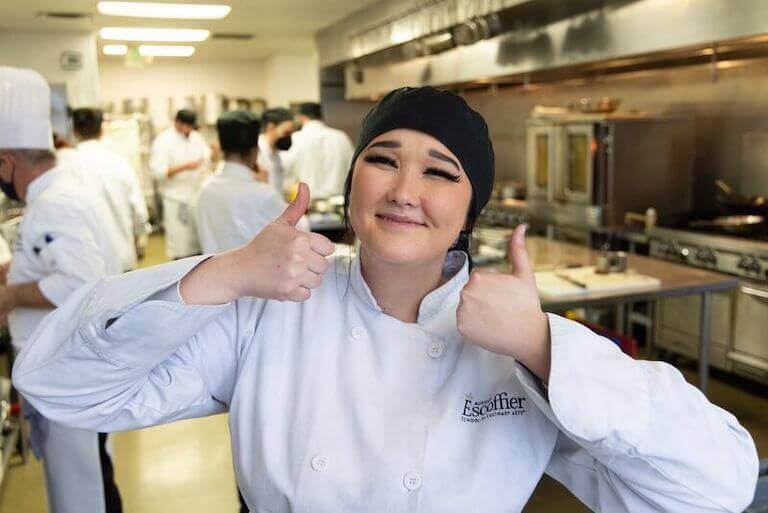
After acceptance, commitment, and orientation, students are ready to start their programs!
What You’ll Need When You Start Your Program
Most of what you need to get started will be provided by Escoffier and is included in your school tuition. These supplies will vary depending on your program and campus.
On-Campus Student Tools and Supplies
Students studying at our Austin, Texas or Boulder, Colorado campuses are provided with a uniform and toolkit that they’ll need during their courses. The official Escoffier uniform includes a white chef’s coat, apron, pants, and skull cap, which students wear daily. (Non-slip, oil-resistant black shoes are their responsibility to purchase.) Tools provided may include knives and other items integral to your program.
Online Student Tools and Supplies
Online students receive similar toolkits as on-campus students. Some items could include a scale, plastic bowl scraper, chef’s knives, thermometer, and more.
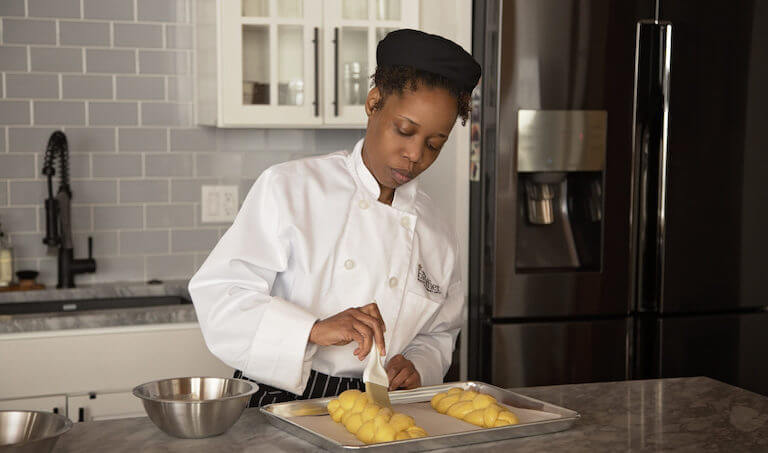
Online students may receive some useful items in their toolkits, while they may need to source others themselves.
Since they’re studying online, these students also have some technological needs, beginning with a computer. Students can provide their own, or they can purchase a Chromebook through Escoffier. To access their learning platforms, they’ll need either Google Chrome or Mozilla Firefox browser installed on their computers, as well as a stable internet connection.
Online students also need a phone or camera for taking food photos. Many students already have all of this equipment at home!
Get Enrolled in Culinary School… and Get Cooking!
The application process and requirements for culinary school vary depending on the institution. At Escoffier, we work hard to make the process as simple as possible, answering your questions and addressing any concerns you have along the way. We’re excited for you to get enrolled and start exploring the culinary world!
If you have any questions about the application process or any program curricula, our Admissions Department is available to help.
TO LEARN MORE ABOUT WHAT TO EXPECT FROM A CULINARY EDUCATION, TRY THESE ARTICLES NEXT:
- How Long Does It Take To Finish Culinary School?
- 5 Culinary School Skills You Can Take With You Anywhere
- Can You Become a Chef Without Going to Culinary School?
This article was originally published on February 15, 2019, and has since been updated.
*Information may not reflect every student’s experience. Results and outcomes may be based on several factors, such as geographical region or previous experience.
**Degree must be in a program that fully matriculates into a bachelors level program
*****Items may vary depending on the program and location.


